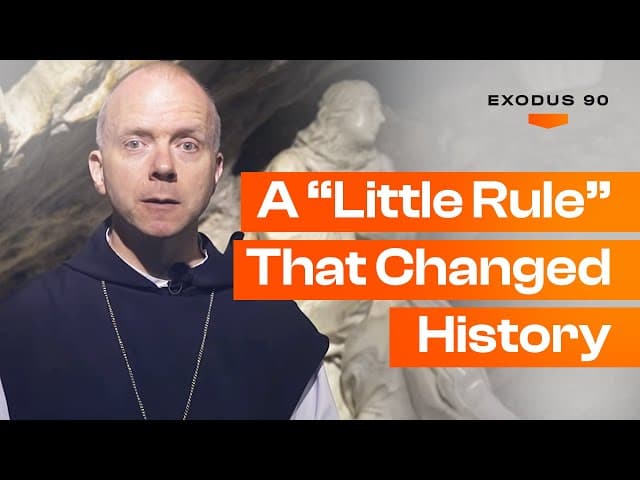Create Account
Manage my channels
Watch later and create collections
Manage your email subscriptions
Exclusive offers and opportunities
In this episode, Bishop Erik Varden answers your questions! He addresses balancing prayer with daily responsibilities, the discipline of silence, responsible financial planning, honest communication in relationships, and more!
This January, take up the example of the Fathers and embrace a life of prayer, asceticism, and fraternity. Leave behind the pharaohs and idols that keep you enslaved and take up the journey to the promised land. Join tens of thousands of men from all around the world for the Exodus 90 Challenge. We start January 5th, 2026. Download the Exodus 90 app or visit Exodus90.com to learn more
Visit https://desertfathers.com to join our email newsletter for updates and reflections.
We owe a special thanks to our partners. Desert Fathers with Bishop Erik Varden is...
• 🦉...written by Bishop Erik Varden. You can follow Bishop Varden on his blog, https://coramfratribus.com
• 🎥 ...produced by EWTN, https://ewtn.com
• 🎙️ ...edited and supported by Saint Kolbe Studios, https://saintkolbestudios.com
• 🧡...and brought to you by Exodus 90, download the Exodus 90 app today at https://app.exodus90.com
Chapters
00:00 Introduction and Context of the Q&A Session
03:07 The Nature of Love and Self-Forgetfulness
09:03 Philosophical Perspectives on Progress and History
18:45 Stoicism and Its Relevance to Christian Living
21:41 Artificial Intelligence and Wisdom from the Desert Fathers
29:19 The Solitary Life and Its Impact on Humanity
35:09 Challenges of Prayer and Asceticism
44:42 Living Joyfully in Celebratory Seasons
49:35 The Discipline of Speech and Communication
54:07 Practical Wisdom for Financial Responsibility
58:38 Navigating Romantic Relationships and Spiritual Priorities
01:07:57 Conclusion and Blessing
Tags:
Desert Fathers, Bishop Erik Varden, Q&A, love, self-knowledge, humility, progress, Stoicism, artificial intelligence, prayer, asceticism, financial responsibility, romantic relationships







